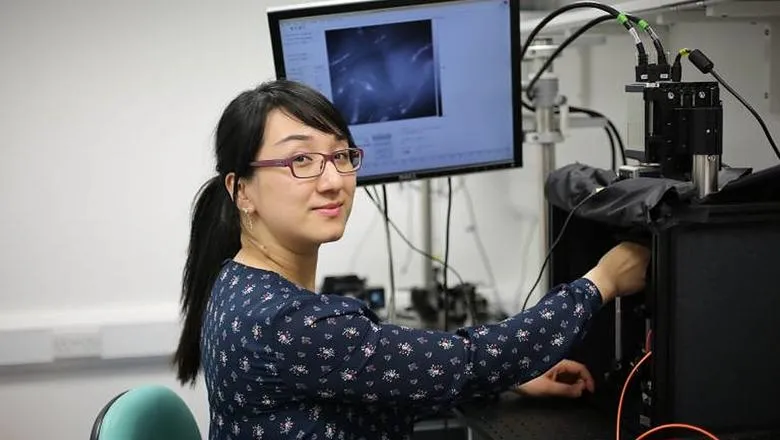This funding will give me the opportunity to begin new research focusing on the development of the world’s first cost-effective 3D multi-modal exoscope designated for use in the surgical environment,”
Dr Yijing Xie, Research Associate and For Women in Science Rising Talent Award recipient.
01 June 2020
Dr Yijing Xie receives Rising Talent Award in engineering for new brain surgery technology
Dr Xie was awarded the prize in recognition of her proposed research developing an optical imaging system which guides brain tumour resection.

Dr Yijing Xie, Research Associate from King’s School of Biomedical Engineering & Imaging Sciences, has been awarded the L'Oreal-UNESCO UK and Ireland For Women in Science Rising Talent Award, which each year recognizes five outstanding women scientists to facilitate promising scientific research and support their career development.
Dr Xie received the endowment to enable her research, which proposes to develop a non-invasive functional Multispectral Light Field Imaging system, a tool that uses different imaging technologies to help brain surgeons distinguish between cancerous and healthy tissue and identify critical brain functions, reducing risk and surgery time.
Dr Xie hopes the award will act as a springboard for her to develop an independent research niche.
The high-definition exoscope uses a complex image reconstruction algorithm to combine light field and multispectral imaging.
Multispectral imaging helps surgeons gauge the optical properties of tissue and provides multiple outputs at once, including classification of tissue microstructure, brain functional activities and quantitative fluorescence mapping.
Using light field technology, the system then renders the data into a 3D reconstructed field, providing surgeons with a real time surgical map in the operating room.
"A key benefit is that the tool can be easily integrated into existing clinical workflows and allows surgeons to differentiate tumour tissue for precise removal and minimal loss of brain function post-surgery,” said Dr Xie.
By providing more precise guidance during surgery, Dr Xie’s system can greatly benefit interventions such as awake craniotomies, complex procedures which involve removing brain tumour tissue adjacent to healthy brain regions with critical motor, language or cognitive functions.
It is estimated nearly 6,000 new cases of brain tumour are diagnosed in the UK each year. The technological innovations in neurosurgery Dr Xie is developing, in collaboration with peers at King’s and outside the UK, have the potential to improve the quality and longevity of life of many patients around the world.
This research is partially funded by the Centre for Medical Engineering.
